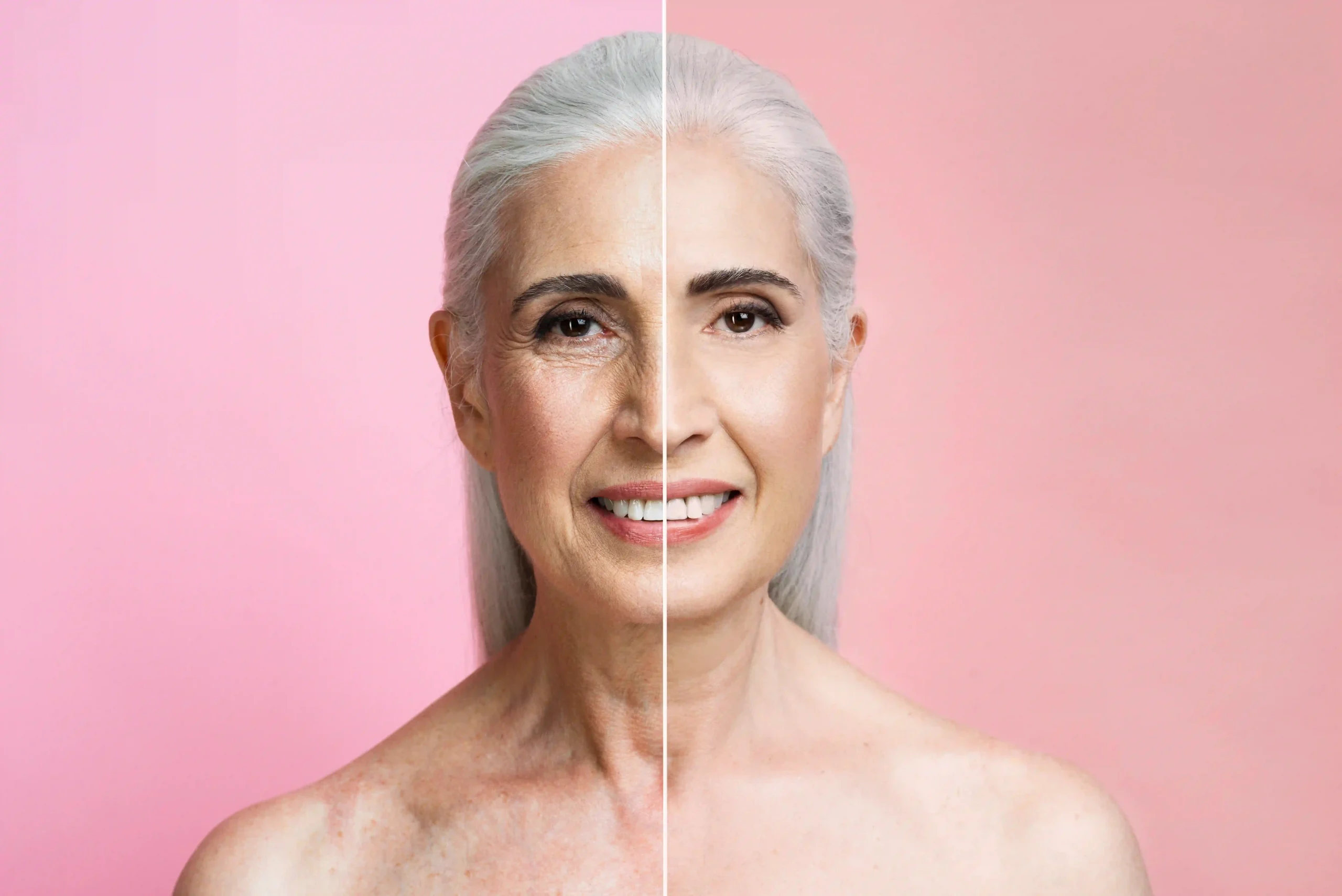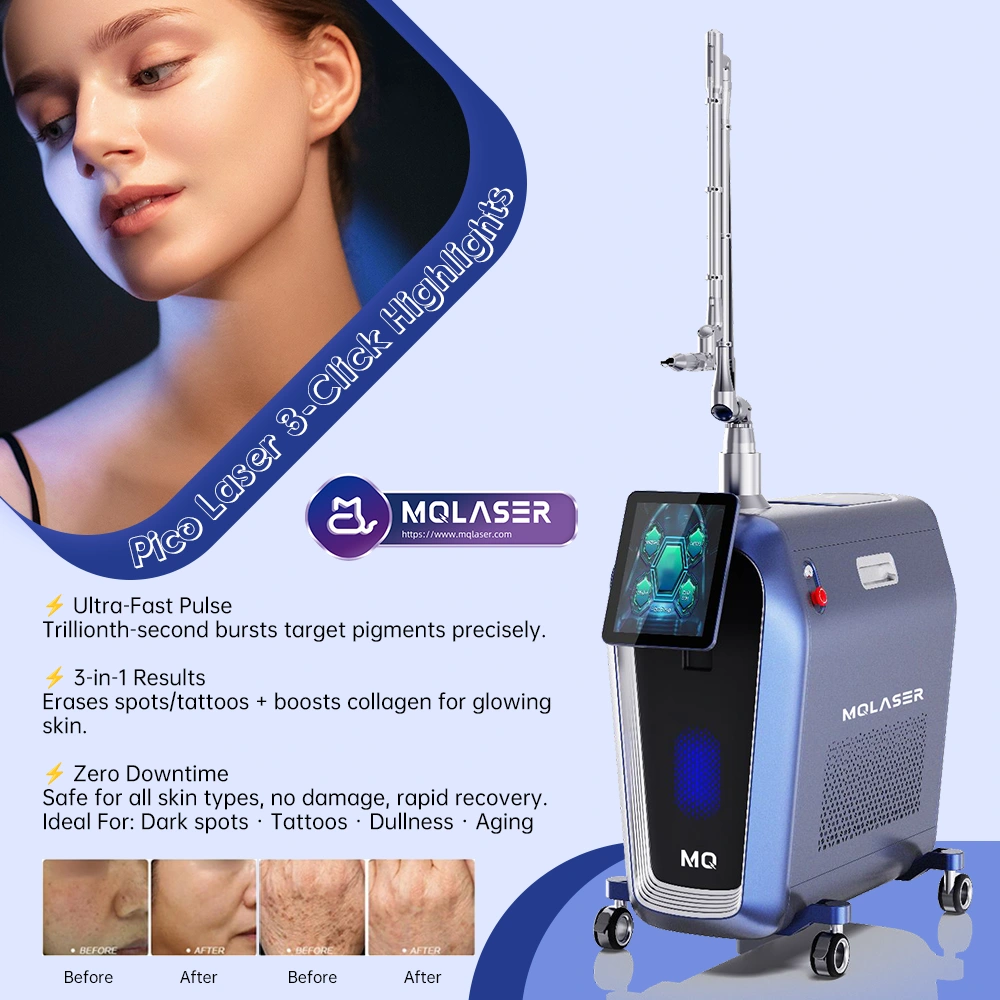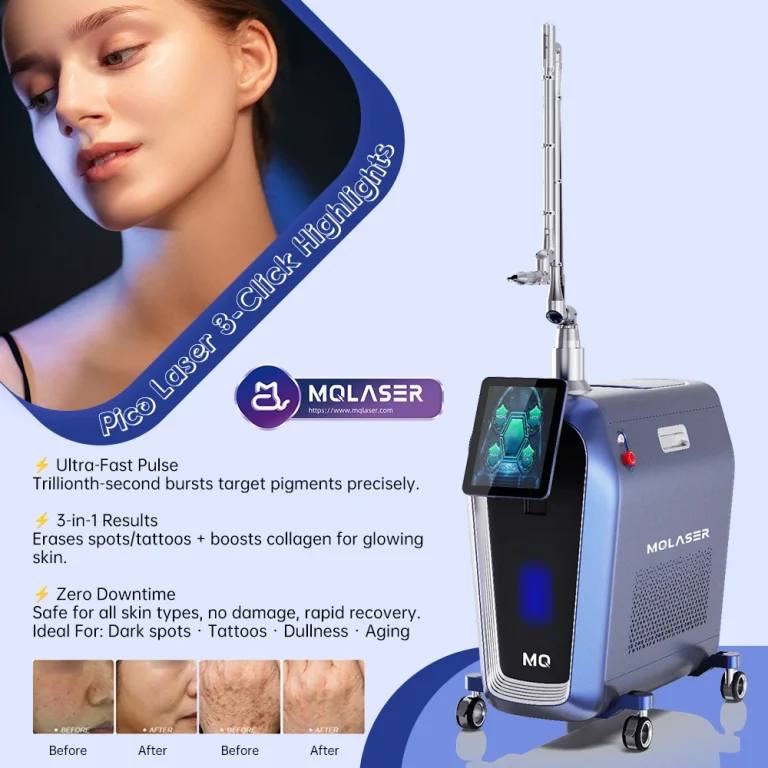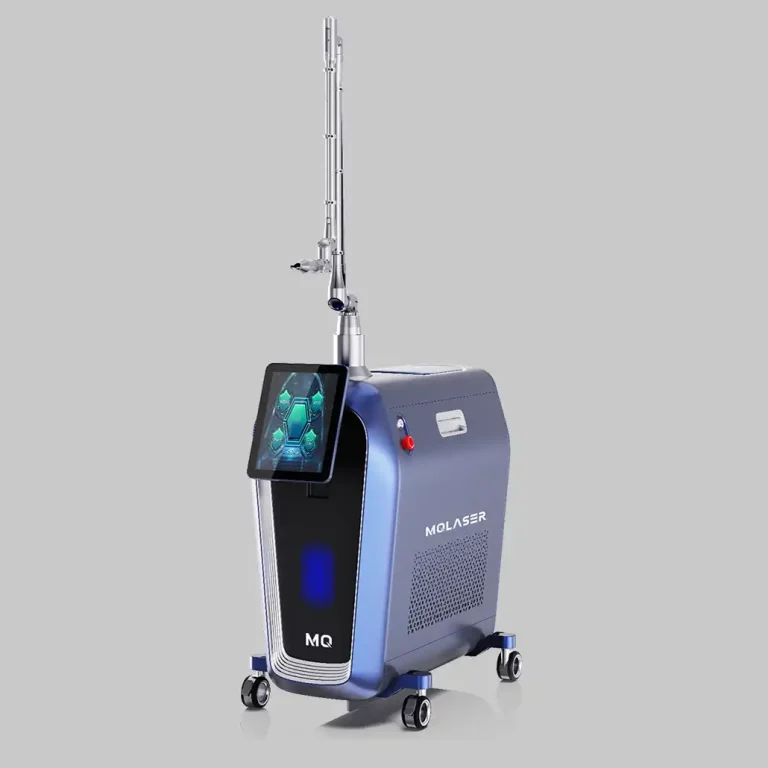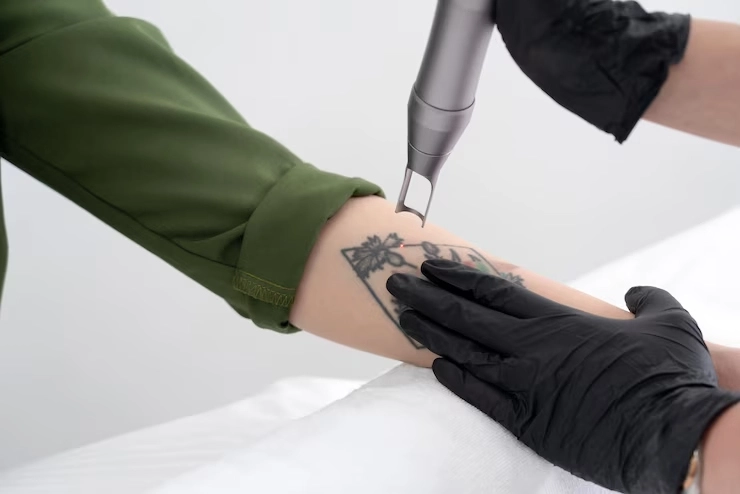Wrinkles show up as we age, but we don’t have to like them. New laser tools make it easy to get smoother, younger-looking skin. Two great choices for wrinkle removal are picosecond lasers and ablative fractional lasers. Each works in its own way. They have different strengths and results. So, which one fits you best?
Comparing Two Popular Laser Treatments for Skin Renewal
Picosecond and ablative fractional lasers take different paths to make your skin look fresh. Both help grow collagen and reduce aging signs. But they vary a lot in how they send energy, how deep they reach, how long it takes to heal, and what results you get.
Why Laser Technology Has Become the Go-To for Wrinkle Care
Lasers are now a big part of skin care. They’re exact, work well, and don’t need surgery. These tools are gentle or only slightly invasive. They heal faster than old cosmetic methods.
What Is a Picosecond Laser?
A picosecond laser is a new kind of device. It shoots very fast bursts of energy. These bursts are super quick—measured in trillionths of a second. They target pigment and help collagen grow.
How Picosecond Lasers Work on the Skin
Picosecond lasers don’t use heat like old lasers. Instead, they make a “shockwave” effect. This breaks up pigment bits and starts skin repair. It causes little harm to nearby skin. The energy is safe and doesn’t hurt cells. This makes it very gentle.
Benefits of Picosecond Lasers in Wrinkle Reduction
- Soft but Helpful Skin Refresh
Picosecond lasers are kind to delicate spots, like around your eyes or lips. They make skin look new by growing collagen. They don’t hurt the skin nearby. - Quick Rest and Fast Healing
Most people go back to their normal day in one or two days. There’s no big peeling or surface harm. So, healing is fast compared to stronger treatments. - Exact Energy for Clear Results
These lasers send energy with great care. The doctor uses a light, easy-to-hold tool. It treats only the problem spots. Healthy skin stays safe.
What Is an Ablative Fractional Laser?
Ablative fractional lasers send tiny light beams into the skin. A common one is the CO2 laser, which uses a 10,600 nm wavelength. These beams make thousands of small treatment spots. This helps the skin heal and grow new cells.
How Ablative Lasers Affect the Skin Surface
These lasers clear away the top damaged skin layers. They also warm deeper layers. Think of it like poking tiny holes in a lawn to help it grow better. The small, planned injuries spark the body’s healing power.
Key Advantages of Ablative Fractional Lasers for Wrinkles
- Big Changes After Fewer Visits
These lasers work strongly. They often show clear improvements after just one or two sessions. They’re perfect for people wanting fast results. - Great for Deep Lines and Rough Skin
These lasers go deeper into the skin than gentler tools. This makes them super good for deep wrinkles and bumpy skin. - Growing New Skin
By clearing old layers and warming deeper tissue, these lasers tighten collagen. They also help new, smoother skin grow.
Comparing Picosecond and Ablative Fractional Lasers
- Treatment Feel
Picosecond treatments are usually easy with little pain. Ablative fractional lasers cause more redness, swelling, and peeling. This happens because they renew the skin’s surface. - Healing Time and Care
After a picosecond laser, most people go back to normal in 24–48 hours. Ablative treatments may need a week or more to heal. It depends on how deep the treatment goes. But new machines are better. They send steady energy, which makes healing faster. - Results Over Time
Picosecond lasers often need several sessions, like 3–5, spread out over weeks. This gives the best results. Ablative lasers may give the same or bigger results in fewer visits. That’s because they work on deeper skin layers.
Which Option Suits Your Needs?
Choosing the right laser depends on you. It depends on your skin and your daily life.
- Age and Skin Type
Younger people with early aging signs might like the softer picosecond laser. Older people with deep wrinkles or lots of sun damage may do better with ablative treatments. - Lifestyle and Healing Time
Busy people who can’t take much time off often pick picosecond lasers. But if you can rest for a while, ablative lasers might give bigger results.
The Role of Technology in Modern Skincare Devices
New tools keep making skin care better. They’re safer and work well. Modern machines have easy designs and settings you can change. They focus on good results and comfort. Things like better cooling and exact energy control give great outcomes with less healing time.
MQLASER: A Trusted Supplier of Picosecond Laser Machines
When picking pro-level equipment, go with trusted names like MQLASER. They’re known for top-quality beauty tools.
- About MQLASER’s Expertise
Since 2010, MQLASER has built a strong name. They have approvals like CE, ISO13485, and FDA clearance. These show they meet world safety rules. - MQLASER’s Picosecond Laser Machines at a Glance
Their machines are simple to use and built for great work. They fix pigment problems and reduce wrinkles. They have light, comfy handpieces for exact control. These approvals prove the machines are steady and reliable.
Final Thoughts
Your choice between picosecond lasers and ablative methods depends on your skin goals. Do you want gentle precision or strong, deep renewal? By matching your needs to what each tool does, you can pick the best one. This helps you get healthy, confident skin for years.
FAQs
Q1: Is the picosecond laser painful during treatment?
A: Most people feel only a little discomfort. It’s like a rubber band snapping on your skin. It doesn’t use strong heat, so it’s much less painful than older lasers.
Q2: How long does it take to see results from either laser treatment?
A: You might see changes in a few weeks after the first session. But full collagen growth takes time. It could be a few months. It depends on your body and how many sessions you do.
Q3: Can I go back to work right after laser wrinkle removal?
A: With picosecond lasers, yes! Most people return to their routine in a day or two. It’s gentle. For ablative treatments, you’ll likely need a few days to rest. Healing depends on how deep the treatment was.


